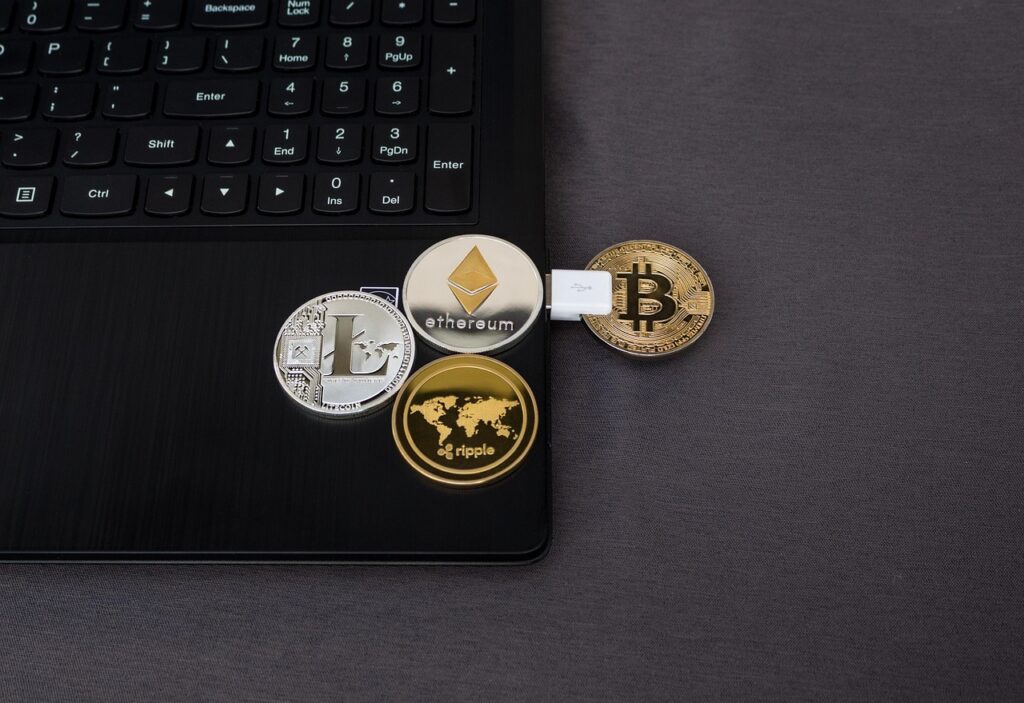So, you’re wondering, can I buy real estate with crypto? It’s a question a lot of people are asking these days. The world of digital money and property is changing super fast, and what was impossible yesterday might be totally doable tomorrow. This article will break down what you need to know about using your Bitcoin, Ethereum, or other digital assets to get yourself a piece of the real estate pie. We’ll look at how it works, what the current situation is, and what you should watch out for.
Table of Contents
- 1 Can You Buy Real Estate with Crypto in 2025? Overview & Key Trends
- 2 Legal Feasibility: Is Crypto Accepted for Property Purchases?
- 3 Popular Cryptocurrencies for Real Estate: BTC, ETH, Stablecoins & More
- 4 Bitcoin (BTC)
- 5 Ethereum (ETH)
- 6 Stablecoins (USDT, USDC, etc.)
- 7 Other Cryptocurrencies
- 8 How It Works: Step-by-Step Crypto Property Buying Process
- 9 Real-World Examples: High‑Value Properties Bought with Crypto
- 10 Luxury Condos in Miami
- 11 Villas in Dubai
- 12 Commercial Properties
- 13 Challenges and Considerations
- 14 Tokenized and Fractional Real Estate: Investing with Crypto
- 15 Crypto-Backed Mortgages: Buying Property Without Selling Crypto
- 16 Global Hotspots: Countries & Cities Accepting Crypto for Real Estate
- 17 Emerging Crypto Real Estate Hubs
- 18 Countries with Favorable Regulations
- 19 Challenges and Considerations
- 20 Dubai’s Model: Crypto for Luxury Real Estate in 2025
- 21 Regulatory & Tax Considerations When Buying Real Estate with Crypto
- 22 Smart Contracts, Escrow & KYC/AML: Ensuring a Secure Transaction
- 23 Smart Contracts for Real Estate
- 24 Crypto Escrow Services
- 25 Risks and Limitations: Volatility, Liquidity & Adoption Barriers
- 26 Volatility: A Rollercoaster Ride
- 27 Liquidity Challenges
- 28 Adoption Barriers: Still Early Days
- 29 Regulatory Uncertainty
- 30 Security Concerns
- 31 Frequently Asked Questions
- 32 Can you buy real estate with crypto?
- 33 What is crypto real estate?
- 34 Is buying a house with Bitcoin really possible?
- 35 Can I make an offer on a house with crypto?
- 36 Do real estate escrow companies accept Bitcoin or crypto?
- 37 Where can I find homes for sale that accept crypto?
- 38 How does RealOpen work if I want to buy a house with Bitcoin?
- 39 What if the price of crypto drops before I close on the house?
Can You Buy Real Estate with Crypto in 2025? Overview & Key Trends
It’s 2025, and the question isn’t if you can buy real estate with crypto, but how and where. The landscape has changed a lot in the last few years. We’re seeing a surge in acceptance, innovative platforms, and evolving regulations that are making crypto real estate transactions more accessible than ever.
The integration of blockchain technology is streamlining the process, offering increased transparency and efficiency. Smart contracts are becoming more common, automating many aspects of the transaction and reducing the need for intermediaries.
Here’s a quick look at some key trends:
- Increased Acceptance: More sellers are open to accepting crypto, especially in certain markets. This is driven by a growing understanding of crypto and the desire to tap into a wider pool of buyers.
- Platform Innovation: Platforms like RealOpen are making it easier to buy a house with Bitcoin or other cryptocurrencies. These platforms handle the conversion to fiat currency, making the process smoother for both buyers and sellers.
- Regulatory Clarity: While still evolving, regulations surrounding crypto and real estate are becoming clearer in many jurisdictions. This provides more certainty and encourages wider adoption.
Legal Feasibility: Is Crypto Accepted for Property Purchases?
It’s 2025, and the question of whether you can legally buy real estate with crypto is more nuanced than a simple yes or no. The legality isn’t usually the barrier; it’s the acceptance and infrastructure. While some regions are warming up to digital currency property investment, others are lagging.
Most of the time, the actual purchase involves converting your crypto to fiat currency (like USD or EUR) before the deal closes. This conversion happens behind the scenes, so the seller receives traditional money, even if you paid with Bitcoin. Think of it as using a foreign currency exchange when traveling – the shop still gets its local money.
- Direct crypto payments are still relatively rare. Sellers need to be willing to accept crypto, and that’s not always the case.
- Regulations vary widely. What’s legal in one country might be a legal gray area in another.
- Tax implications are a big deal. Selling or trading crypto triggers tax events, and you need to factor that into your calculations.
The key takeaway is that while buying property with crypto is increasingly possible, it’s not always straightforward. You’ll likely need a service that handles the crypto-to-fiat conversion, and you should always consult with legal and tax professionals to ensure you’re compliant with all applicable laws.
Popular Cryptocurrencies for Real Estate: BTC, ETH, Stablecoins & More
When it comes to crypto real estate transactions, not all digital currencies are created equal. Some have gained more traction than others in the property market. Let’s explore the frontrunners.
Bitcoin (BTC)
Bitcoin, the original cryptocurrency, is often the first one people think of when considering using crypto to buy assets. While not universally accepted, it’s gaining ground. Some sellers are willing to accept BTC directly, especially for high-value properties. However, be prepared for potential volatility; locking in the BTC value at the time of closing is key to mitigating risk.
Ethereum (ETH)
Ethereum, with its smart contract capabilities, opens up interesting possibilities for real estate. It’s not just a currency; it’s a platform. This makes it suitable for tokenized real estate and other innovative applications. The blockchain real estate platforms are increasingly built on Ethereum.
Stablecoins (USDT, USDC, etc.)
Stablecoins, like Tether (USDT) and USD Coin (USDC), are designed to maintain a stable value, usually pegged to a fiat currency like the US dollar. This makes them a less volatile option compared to BTC or ETH, which is attractive for real estate deals. Their stability reduces the risk of price swings during the transaction process. Using stablecoins to buy real estate with bitcoin is a good way to avoid volatility.
Other Cryptocurrencies
While BTC, ETH, and stablecoins are the most popular, other cryptocurrencies are also emerging in the real estate space. Some projects are even creating their own tokens specifically for real estate investment. Keep an eye on these developments, but always do your research before investing.
It’s important to remember that the acceptance of specific cryptocurrencies can vary widely depending on the location, the seller, and the specific platform or service being used. Always confirm which currencies are accepted before proceeding with a transaction.
How It Works: Step-by-Step Crypto Property Buying Process

So, you’re thinking about buying property with crypto? It’s not as crazy as it sounds! Here’s a breakdown of how it generally works. Keep in mind that the specifics can vary depending on the platform or service you use, and also on the location of the property.
First, you’ll need to find a seller who’s willing to accept cryptocurrency. This is probably the biggest hurdle right now, but it’s becoming more common. Once you’ve found a willing seller, here’s what usually happens:
- Find a Property and Agree on Terms: Just like a traditional real estate transaction, you’ll start by finding a property you like and negotiating the price and other terms with the seller. Make sure everyone is clear that the payment will be made in crypto.
- Choose a Crypto-Friendly Platform or Service: Several platforms specialize in facilitating real estate transactions with crypto. These platforms often handle the complexities of converting crypto to fiat currency for the seller. They also help with escrow and KYC/AML compliance.
- Secure Your Crypto: Make sure your crypto is stored securely in a wallet that you control. A hardware wallet is often recommended for large transactions. You’ll need to have enough crypto to cover the purchase price, plus any transaction fees.
- Complete the Transaction: The platform will guide you through the process of transferring your crypto to an escrow account. Once the title is transferred and all the paperwork is in order, the crypto will be converted to fiat currency and transferred to the seller.
It’s important to remember that the value of crypto can fluctuate, so it’s a good idea to work with a platform that can lock in the exchange rate at the time of closing. This will protect you from unexpected price swings.
- Finalize the Deal: With the funds transferred, the property is officially yours! You’ve successfully navigated the world of [using bitcoin for home purchase].
Real-World Examples: High‑Value Properties Bought with Crypto
It’s easy to think buying real estate with crypto is just a futuristic idea, but it’s already happening! While it’s not the norm yet, there are some pretty interesting examples of high-value properties being purchased using cryptocurrencies. These transactions show that it’s possible, even if there are still hurdles to overcome.
One thing to keep in mind is that many of these deals are facilitated by companies that convert the crypto into fiat currency (like USD) for the seller. This makes the process smoother for everyone involved, as most sellers aren’t quite ready to accept crypto directly.
Luxury Condos in Miami
Miami has emerged as a bit of a hub for crypto real estate. There have been several reports of luxury condos being sold for Bitcoin or Ethereum. These deals often involve high-net-worth individuals looking to diversify their crypto holdings into tangible assets. The appeal of Miami, with its vibrant culture and growing tech scene, makes it an attractive location for crypto enthusiasts.
Villas in Dubai
Dubai is another hotspot where crypto is gaining traction in the real estate market. Several high-end villas have been sold using crypto, often facilitated by real estate companies specializing in these types of transactions. Dubai’s forward-thinking approach to technology and its luxury real estate market make it a natural fit for crypto-based property deals. It’s also worth noting that Dubai has a relatively favorable regulatory environment for crypto, which encourages these types of transactions.
Commercial Properties
It’s not just residential properties; there have also been instances of commercial properties being bought with crypto. While these deals are less common, they demonstrate the potential for crypto to be used in larger, more complex real estate transactions. For example, a small office building might be purchased using Bitcoin, with the transaction being handled through a specialized real estate platform.
It’s important to remember that these are still relatively isolated examples. The real estate industry is generally slow to adopt new technologies, and there are still regulatory and logistical challenges to overcome. However, these real-world examples show that buying property with crypto is not just a pipe dream – it’s a reality, albeit a niche one, right now. As NFTs revolutionize digital ownership, we might see more of these deals in the future.
Challenges and Considerations
While these examples are exciting, it’s important to acknowledge the challenges involved. Volatility is a major concern, as the value of crypto can fluctuate significantly in a short period. This can make it difficult to determine a fair price for the property. Liquidity is another issue, as it may not always be easy to convert large amounts of crypto into fiat currency quickly. Finally, regulatory uncertainty remains a barrier, as governments around the world are still grappling with how to regulate crypto assets.
Tokenized and Fractional Real Estate: Investing with Crypto
Real estate tokenization is changing the game. Instead of buying an entire property, you can purchase fractions of it represented by digital tokens on a blockchain. This opens up real estate investment to a much wider audience, as the entry costs are significantly lower. Tokenized real estate makes investing more accessible and liquid.
Think of it like buying shares in a company, but instead of owning a piece of a business, you own a piece of a building or land. This blockchain-based real estate approach offers several advantages over traditional real estate investment.
- Lower investment minimums: You don’t need hundreds of thousands of dollars to get started.
- Increased liquidity: Tokens can be bought and sold more easily than physical property.
- Diversification: You can spread your investment across multiple properties.
Tokenization brings efficiency, transparency, and security to real estate investing. Smart contracts automate processes like rent distribution and voting rights, reducing the need for intermediaries and paperwork.
Here’s a simple comparison:
| Feature | Traditional Real Estate | Tokenized Real Estate |
| Minimum Investment | High | Low |
| Liquidity | Low | High |
| Accessibility | Limited | Wide |
| Transparency | Opaque | Transparent |
With tokenized real estate, you can invest in real estate without the headaches of property management or the large capital outlay. It’s a modern way to diversify your portfolio and participate in the real estate market.
Crypto-Backed Mortgages: Buying Property Without Selling Crypto
Want to buy a house but don’t want to sell your crypto? Crypto-backed mortgages are becoming a thing. Instead of selling your Bitcoin or Ethereum, you can use it as collateral to secure a loan for buying property with cryptocurrency. This lets you keep your digital assets while still investing in real estate. It’s a pretty interesting way to get into the housing market without cashing out your crypto holdings.
Here’s the basic idea:
- You pledge your crypto as collateral.
- The lender gives you a loan in fiat currency (like USD).
- You use the Fiat to buy the property.
- You repay the loan over time, just like a traditional mortgage.
The main advantage is that you maintain ownership of your crypto, which could potentially appreciate over time. Plus, you avoid triggering capital gains taxes that would come with selling your crypto.
It’s worth noting that the terms and conditions of crypto-backed mortgages can vary quite a bit. Interest rates, loan-to-value ratios, and accepted cryptocurrencies can all differ from lender to lender. So, it’s important to shop around and compare offers before making a decision. Also, keep in mind that if the value of your crypto collateral drops significantly, the lender may require you to add more collateral or even liquidate your position. This is why understanding the risks is super important.
Global Hotspots: Countries & Cities Accepting Crypto for Real Estate
It’s 2025, and the landscape of real estate is changing. More places are warming up to the idea of crypto as a legitimate form of payment. While it’s not everywhere yet, some countries and cities are becoming known as crypto-friendly zones for property transactions. Let’s take a look at some of the hotspots.
Emerging Crypto Real Estate Hubs
Several locations are making a name for themselves as places where you can actually buy property with crypto. It’s not just about legal acceptance; it’s about having the infrastructure and willingness to make it happen. For example, Hong Kong is increasingly accepting crypto as proof of wealth for immigration.
- Miami, USA: Miami has been pushing to become a crypto hub for years, and it’s starting to pay off. You can find developers and sellers willing to accept crypto for luxury condos and homes.
- Dubai, UAE: Dubai is making big moves in the crypto real estate world. With a focus on luxury properties, Dubai aims to be a leader in crypto transactions. More on that later!
- Zug, Switzerland: Known as “Crypto Valley,” Zug has a well-established crypto community and is open to digital currency transactions, including real estate.
Countries with Favorable Regulations
Some countries are more welcoming to crypto in general, which naturally extends to real estate. These places often have clearer regulations and a more accepting attitude.
- Portugal: Portugal has been a tax haven for crypto, making it attractive for investors looking to buy property. No capital gains taxes on crypto have helped fuel interest.
- Germany: Germany has a relatively progressive stance on crypto, and while regulations exist, they are generally considered reasonable. This makes it easier to use crypto for real estate transactions.
- St. Kitts and Nevis: This Caribbean nation is very crypto-friendly. Owning real estate there can even lead to residency or citizenship. Plus, there are no capital gains taxes on crypto investments.
It’s important to remember that the situation is constantly evolving. Regulations can change, and what’s true today might not be true tomorrow. Always do your research and consult with legal and financial professionals before making any decisions.
Challenges and Considerations
Even in these hotspots, buying real estate with crypto isn’t always straightforward. You might face challenges like:
- Seller acceptance: Not every seller is willing to take crypto. You need to find someone who is open to it and has the necessary infrastructure (like a crypto wallet).
- Volatility: Crypto prices can fluctuate wildly, which can complicate the transaction. Stablecoins can help, but even they aren’t immune to market swings.
- Tax implications: Buying property with crypto can trigger tax events. You need to understand the tax laws in both your country and the country where the property is located.
Dubai’s Model: Crypto for Luxury Real Estate in 2025

Dubai has really positioned itself as a forward-thinking hub, and that’s especially true when it comes to real estate and cryptocurrency. By 2025, Dubai is expected to be a leading example of how crypto can be integrated into the luxury real estate market. It’s not just about accepting Bitcoin for payment; it’s about creating an entire ecosystem that supports and encourages crypto transactions. This includes everything from regulatory frameworks to technological infrastructure.
Dubai’s approach involves a combination of government support, innovative real estate companies, and a population that’s increasingly comfortable with digital assets. This creates a unique environment where buying a luxury apartment with crypto feels as normal as using traditional currency.
Here’s what makes Dubai’s model stand out:
- Clear regulatory guidelines: The government is actively working on regulations that provide clarity and security for crypto real estate transactions.
- Partnerships with crypto exchanges: Many real estate developers are partnering with crypto exchanges to facilitate easy and secure payments.
- Focus on luxury properties: The emphasis is on high-end properties, attracting wealthy crypto investors from around the world.
Dubai is definitely setting the pace for other cities looking to embrace crypto in the real estate sector. It’s a model worth watching if you’re interested in blockchain in real estate and its future.
Regulatory & Tax Considerations When Buying Real Estate with Crypto
Okay, so you’re thinking about buying property with crypto. Awesome! But before you jump in, let’s talk about the not-so-fun stuff: regulations and taxes. It’s not as simple as just sending Bitcoin and getting the keys. Governments are still figuring out how to deal with crypto in real estate, and that means you need to be extra careful.
Understanding the rules can save you a lot of headaches (and money) down the road.
First off, the rules change depending on where you are. What’s okay in Dubai might not fly in the US, and vice versa. So, do your homework!
- Know Your Jurisdiction: Research the specific regulations in the country and even the city where you’re buying. Laws about cryptocurrency taxes can vary wildly.
- Consult a Pro: Seriously, talk to a tax advisor and a real estate lawyer who know their stuff about crypto. They can help you navigate the legal maze.
- Stay Updated: Crypto regulations are constantly evolving. Keep an eye on the news and any changes that might affect your purchase.
It’s easy to get caught up in the excitement of using crypto for a big purchase like real estate. But ignoring the regulatory and tax implications is a recipe for disaster. Take the time to understand the rules, get professional advice, and stay informed. It’ll be worth it in the long run.
Smart Contracts, Escrow & KYC/AML: Ensuring a Secure Transaction
Buying real estate with crypto introduces some cool tech and processes to make sure everything’s safe and above board. We’re talking about smart contracts, escrow services adapted for crypto, and the usual KYC/AML checks.
Smart Contracts for Real Estate
Smart contracts are basically self-executing contracts written in code and stored on a blockchain. They automatically enforce the terms of an agreement when specific conditions are met. Think of it like a vending machine for legal agreements. You put in the right crypto (money), and you get the property deed (the goods) once everything checks out.Blockchain technology can automate rental agreements, escrow, and compliance.
Crypto Escrow Services
Traditional escrow services hold funds until all conditions of a sale are met. Crypto escrow does the same, but with cryptocurrency. This is super important because it protects both the buyer and the seller. No one wants to send a bunch of crypto and then not get the property, or hand over a property and not get paid!
Here’s a quick comparison:
| Feature | Traditional Escrow | Crypto Escrow |
| Currency | Fiat (USD, EUR, etc.) | Cryptocurrency (BTC, ETH) |
| Speed | Slower | Faster |
| Transparency | Less Transparent | More Transparent |
| Intermediaries | More | Fewer |
KYC/AML Compliance
KYC (Know Your Customer) and AML (Anti-Money Laundering) regulations are designed to prevent illegal activities like money laundering and fraud. When buying real estate with crypto, these checks are still necessary. Platforms will need to verify the identities of buyers and sellers and ensure that the crypto being used isn’t linked to anything shady. It’s all about keeping things legit.
Using crypto for real estate can be a bit complex, but these measures are in place to make sure transactions are secure and compliant. It’s a blend of new tech and established legal practices, all aimed at making the process smoother and safer for everyone involved.
Risks and Limitations: Volatility, Liquidity & Adoption Barriers
Buying real estate with crypto sounds cool, but it’s not all sunshine and rainbows. There are some serious risks and limitations you need to think about before jumping in. Let’s break down the main hurdles.
Volatility: A Rollercoaster Ride
Crypto’s price swings can be wild. Imagine agreeing to buy a house for 20 Bitcoin, and then, a week later, Bitcoin’s value drops by 20%. Suddenly, you’re paying way more than you expected, or the seller might get cold feet. This price volatility is a major concern for both buyers and sellers. It’s not like traditional currency, where the value is relatively stable. You could use stablecoins to mitigate this, but even those aren’t immune to market fluctuations.
Liquidity Challenges
Selling crypto quickly to buy property can be tricky. You might not always find a buyer at the price you want, especially if you need to sell a large amount fast. This lack of liquidity can cause delays and missed opportunities. Plus, exchanges have withdrawal limits, which can further complicate things. It’s your crypto, but you might not be able to access it when you need it most.
Adoption Barriers: Still Early Days
While more people are getting into crypto, it’s still not widely accepted for big transactions like real estate. Finding sellers willing to take crypto can be tough. Many real estate professionals and traditional institutions are still hesitant. This limited adoption means fewer options and potentially longer search times. It’s getting better, but we’re not there yet.
The biggest issue is that the real estate world moves slowly. It’s built on established processes and regulations. Crypto is fast-paced and constantly changing. Bridging that gap takes time and effort. We need more education and standardization to make crypto real estate transactions more common.
Regulatory Uncertainty
The rules around crypto and real estate are still evolving. Tax implications can be complex and vary depending on where you live. You need to stay updated on the latest regulations to avoid any legal trouble. It’s a bit of a gray area right now, and that uncertainty can be a deterrent for some.
Security Concerns
Crypto transactions, while often secure, aren’t immune to hacking and fraud. You need to be extra careful when transferring large amounts of crypto. Using secure wallets and following best practices is crucial. Losing your private keys or falling victim to a scam could mean losing a significant chunk of your investment. It’s a risk you need to be aware of.
Here’s a quick summary of the risks:
- Price volatility can make transactions unpredictable.
- Liquidity issues can delay or prevent sales.
- Limited adoption restricts your options.
- Regulatory uncertainty creates legal risks.
- Security threats can lead to a loss of funds.
| Risk | Description |
| Volatility | Sudden price swings can impact the value of the transaction. |
| Liquidity | Difficulty in quickly converting crypto to cash for property purchases. |
| Adoption | A limited number of sellers accept crypto. |
| Regulation | Unclear and evolving legal framework. |
| Security | Risk of hacking, fraud, and loss of private keys. |
Despite these challenges, the potential benefits of buying real estate with crypto are attracting more attention. As the technology matures and adoption increases, some of these barriers may diminish. But for now, it’s important to weigh the risks carefully before making any decisions. Consider consulting with a financial advisor who understands crypto assets and real estate.
Frequently Asked Questions
Can you buy real estate with crypto?
Yes, it’s totally possible to buy a house using digital money like Bitcoin, Ethereum, or USDT. Usually, your crypto gets turned into regular cash before it goes to the escrow company. This way, you can use your digital money even if the person selling the house only takes a normal payment.
What is crypto real estate?
Crypto real estate basically means using digital money to buy property. This can be buying a real house with Bitcoin or Ethereum, putting money into digital pieces of property, or even buying land in online virtual worlds. Our service, RealOpen, focuses on helping people buy real-world homes by changing their crypto into regular cash, so it’s like a normal cash purchase.
Is buying a house with Bitcoin really possible?
Absolutely! RealOpen makes it easy to buy property with Bitcoin or other major cryptocurrencies. We handle changing your crypto into regular money for you, then send it to the escrow company. So, the seller gets dollars, and they don’t need their crypto wallet.
Can I make an offer on a house with crypto?
Yes, you can! RealOpen can give you a special letter that proves you have enough crypto funds. This lets you make offers on houses just like someone paying with all cash. We check your crypto and change it to cash when the deal closes, so you don’t have to sell it early or find a seller who specifically accepts crypto.
Do real estate escrow companies accept Bitcoin or crypto?
Most escrow companies don’t directly take cryptocurrency. But buyers can still buy real estate with crypto by changing it into regular money before sending it to escrow. Some services, like RealOpen, do this for the buyer. This means the deal can be paid for with one crypto transfer, while the seller and escrow company get regular money.
Where can I find homes for sale that accept crypto?
Most house listings don’t say they accept cryptocurrency, but that doesn’t stop you from buying with crypto. Services like RealOpen change your digital money into regular cash during the transaction. This lets you buy any home, no matter whether the seller directly accepts crypto or not.
How does RealOpen work if I want to buy a house with Bitcoin?
RealOpen lets you use Bitcoin, Ethereum, USDC, and other popular cryptocurrencies to buy real estate. We change your crypto into regular money when the deal closes, using a special trading desk. This makes the deal quick, legal, and just like a cash sale.
What if the price of crypto drops before I close on the house?
We lock in the value of your crypto when the deal closes to reduce the risk of its price changing a lot. RealOpen’s RealScore system checks your crypto holdings to help you make a strong, safe offer, so you don’t have to panic and sell your crypto.














